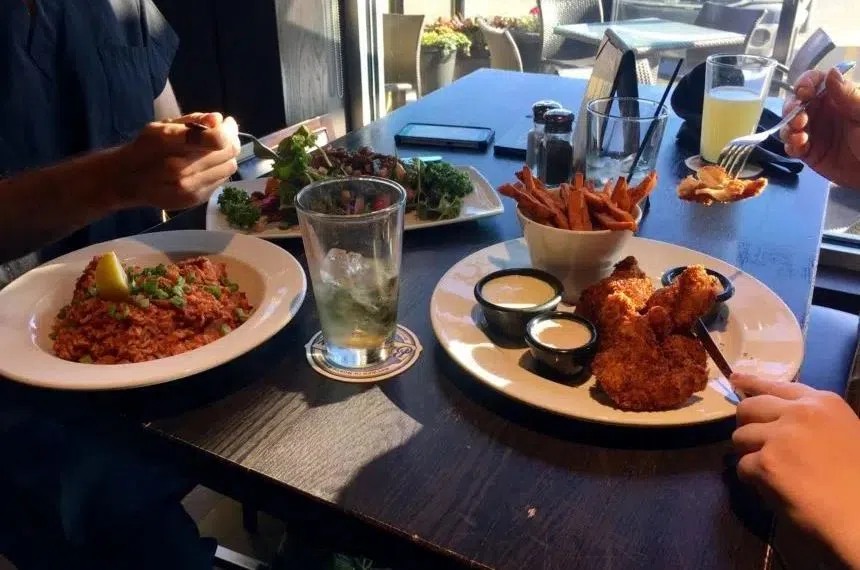United States President-Elect Donald Trump’s threat to implement a 25 per cent tariff on Canadian and Mexican goods later this month has Saskatchewan’s hospitality sector worried about its detrimental effects.
Trump has previously said these duties will be implemented unless the neighbouring countries tighten border restrictions.
Jim Bence, the CEO of Hospitality Saskatchewan, said potential tariffs could heighten anxieties amongst food and beverage operators in Canada that are already facing “razor sharp” margins.
“When we look at our expense lines in this industry, one of the things the pandemic showed the consumers is that there’s really not a lot of money to be made,” he said.
“If the tariffs come in, I think, personally, it would make COVID look like a cakewalk,” he said.

Jim Bence, CEO of Hospitality Saskatchewan says potential tariffs could heighten anxieties amongst food and beverage operators in Canada that are already facing ‘”razor sharp” margins. (Mia Holowaychuk/650 CKOM)
Bence said 2025 is expected to be an “extremely difficult year” for hospitality workers tackling rising costs from lettuce heads to cooking oils. Wages, insurance and lease rates are also on the rise, making it difficult for operators to manage expenses.
While it is more expensive for operators to purchase goods to sell on menus, Bence explains they are reluctant to raise prices in fear that customers might tighten their belts even more with discretionary spending.
“Ultimately it comes back to everybody else having to pay more for their products,” he said, adding that other industries like trucking will also face increased costs for goods and services.
Read more:
- Is Donald Trump kidding? Americans in Canada react to tariff, annexation threats
- U.S. steel, plastics among items Canada may target with retaliatory tariffs
- ‘Very serious conversation’: Moe says Trump’s tariffs would have huge impact
Bence said national partners have a “grey” outlook for the industry’s future if Trump’s tariffs are implemented.
“There’s a lot of hope out there that this is more bluster than anything else (and) that it won’t manifest itself in a way that will be detrimental,” he said.
Bence said operators in the industry are still struggling with debts incurred from the pandemic, with more closures looming.
Reports to Hospitality Saskatchewan suggest that 52 per cent of restaurants, pubs and taverns in the province are currently underwater or breaking even.
Mom-and-pop restaurants and fine dining experiences are what Bence fears will be impacted the most, with those business models dependent on discretionary spending.
However, Bence said quick service business models such as Tim Hortons or McDonald’s could be more resilient to tariff effects.
Bence stressed the importance of supporting both local and branded restaurants to ensure employees and business owners can survive the uncertain future.











